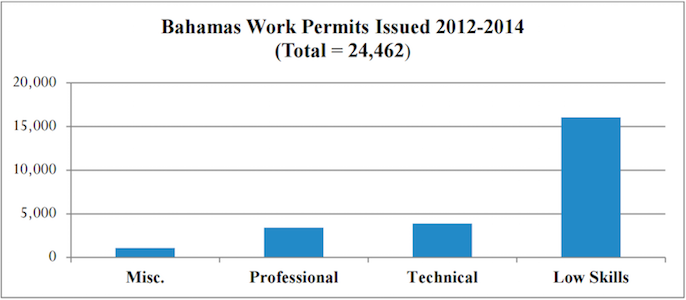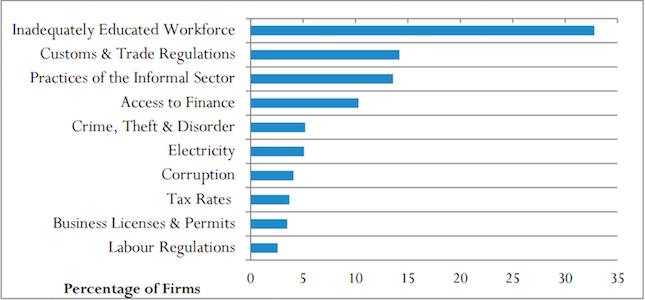Doing Business
The economy is one of the four primary challenges listed in our state of the nation report which notes our “highly vulnerable, undiversified, and underperforming economy” along with the “high costs of doing business.” State of the Nation Report, page 11
“According to the Word Bank’s “Doing Business” indicator 2016, The Bahamas ranked 106th as far as ease of doing business. Singapore was number one while Jamaica, at 58, was the highest-ranked CARICOM state. It is harder to do business in The Bahamas than in many other places. Company formation, for example, takes longer in The Bahamas and is not yet fully automated as it is in competitor jurisdictions.
…The Bahamas’ overall ease of doing business has declined steadily in recent years (ranked 55 out of 189 countries in 2009 to 106 in 2016). A recent World Bank enterprise survey and related Compete Caribbean initiatives concluded there are eight critical areas which are obstacles to competitiveness and companies’ growth:
- Human capital constraints: general deficiency in skills and a lack of needed training in addition to high wages and low productivity issues.
- Customs and trade regulations: need for customs modernisation and public institutional strengthening and reforms.
- Customs duty rates: 80% of Bahamian companies use foreign materials or supplies. Import duties are broadly considered a constraint to domestic private sector competitiveness. (However, it should be noted that tax rates in The Bahamas are amongst the lowest in the world.)
- Practices of informal sector: unfair competition against unregistered companies in addition to those in their formal markets.
- Access to finance: proportion of firms using bank loans for working capital considered one of the lowest among comparator countries.
- Crime, theft and disorder: firms in The Bahamas indicated spending up to 1.6% of the value of their total sales on measures to secure and protect their business, compared to a regional average of 1.5%.
- Electricity: high costs alongside broadly unreliable supply.
- Corruption: based on an incidence of graft index (including expectation of giving a gift in order to receive certain services), The Bahamas’ score at 13.4 ranks high compared to region (6.6) and OECD countries (5.7).” - State of the Nation Report, pages 77-78
Mervin Sweeting, owner of Switcha, made some important points on how the Bahamas Excels in Turning Off Entreprenuers
“A 2014 study by the World Bank on Youth Unemployment in the Caribbean14 noted that 34.5% of employers in Bahamas cite the need for experience as a critical determinant of employment. Additionally, the inadequacy of the education of the workforce was seen as the single largest obstacle to doing business in The Bahamas (Figure 15). The mismatch is seen in all sectors and sizes of business. As a result, 24,462 work permits were issued between 2012 and 2014. A review of the recent immigration statistics suggests that this is not restricted to high level positions but is prevalent across all job categories. As (the figure below) highlights, many of the work permits were issued for low skill/elementary occupations. Less than 30% were issued for professional or technical labour positions.” - State of the Nation Report, pages 27-28

